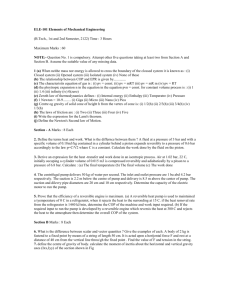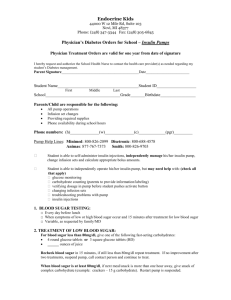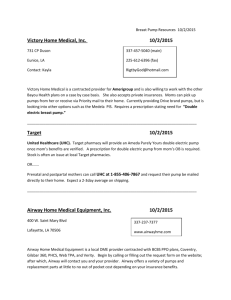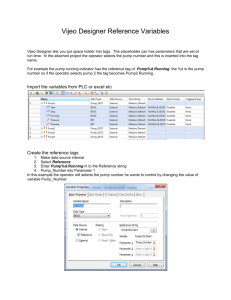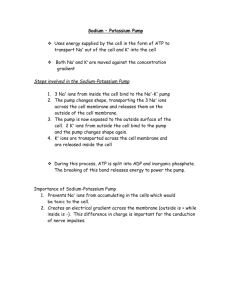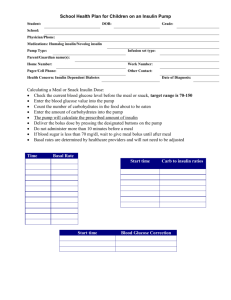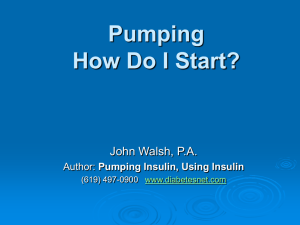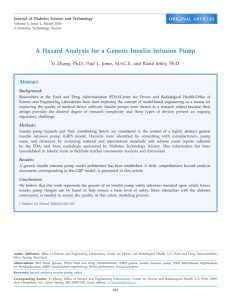Pump Quiz
advertisement
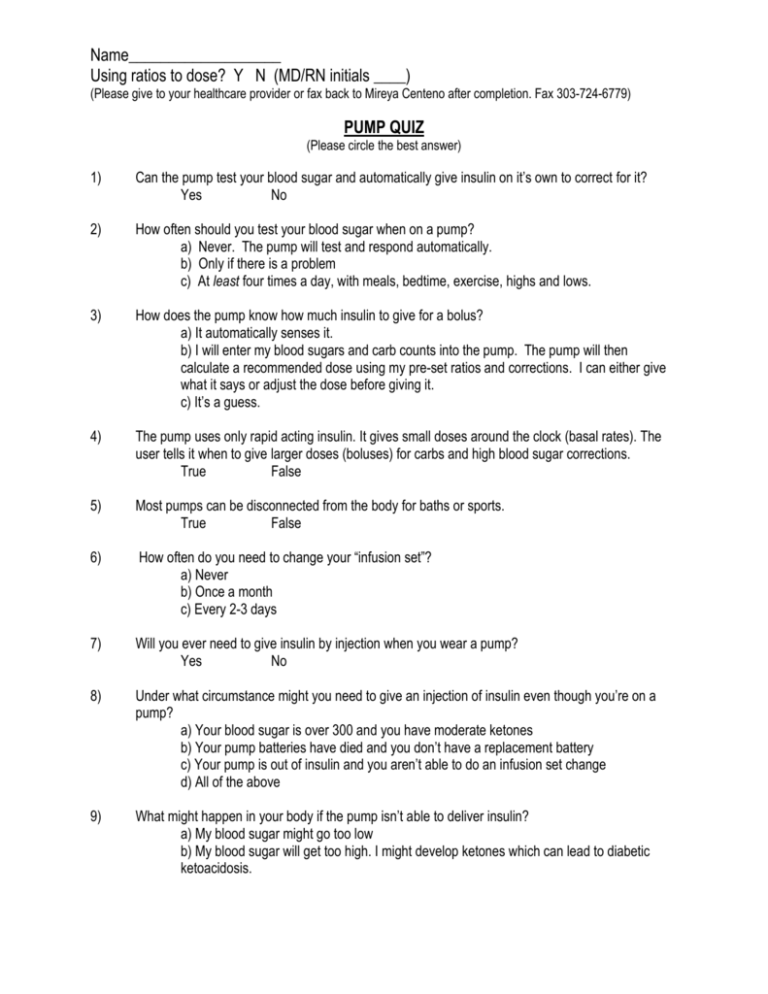
Name___________________ Using ratios to dose? Y N (MD/RN initials ____) (Please give to your healthcare provider or fax back to Mireya Centeno after completion. Fax 303-724-6779) PUMP QUIZ (Please circle the best answer) 1) Can the pump test your blood sugar and automatically give insulin on it’s own to correct for it? Yes No 2) How often should you test your blood sugar when on a pump? a) Never. The pump will test and respond automatically. b) Only if there is a problem c) At least four times a day, with meals, bedtime, exercise, highs and lows. 3) How does the pump know how much insulin to give for a bolus? a) It automatically senses it. b) I will enter my blood sugars and carb counts into the pump. The pump will then calculate a recommended dose using my pre-set ratios and corrections. I can either give what it says or adjust the dose before giving it. c) It’s a guess. 4) The pump uses only rapid acting insulin. It gives small doses around the clock (basal rates). The user tells it when to give larger doses (boluses) for carbs and high blood sugar corrections. True False 5) Most pumps can be disconnected from the body for baths or sports. True False 6) How often do you need to change your “infusion set”? a) Never b) Once a month c) Every 2-3 days 7) Will you ever need to give insulin by injection when you wear a pump? Yes No 8) Under what circumstance might you need to give an injection of insulin even though you’re on a pump? a) Your blood sugar is over 300 and you have moderate ketones b) Your pump batteries have died and you don’t have a replacement battery c) Your pump is out of insulin and you aren’t able to do an infusion set change d) All of the above 9) What might happen in your body if the pump isn’t able to deliver insulin? a) My blood sugar might go too low b) My blood sugar will get too high. I might develop ketones which can lead to diabetic ketoacidosis.


